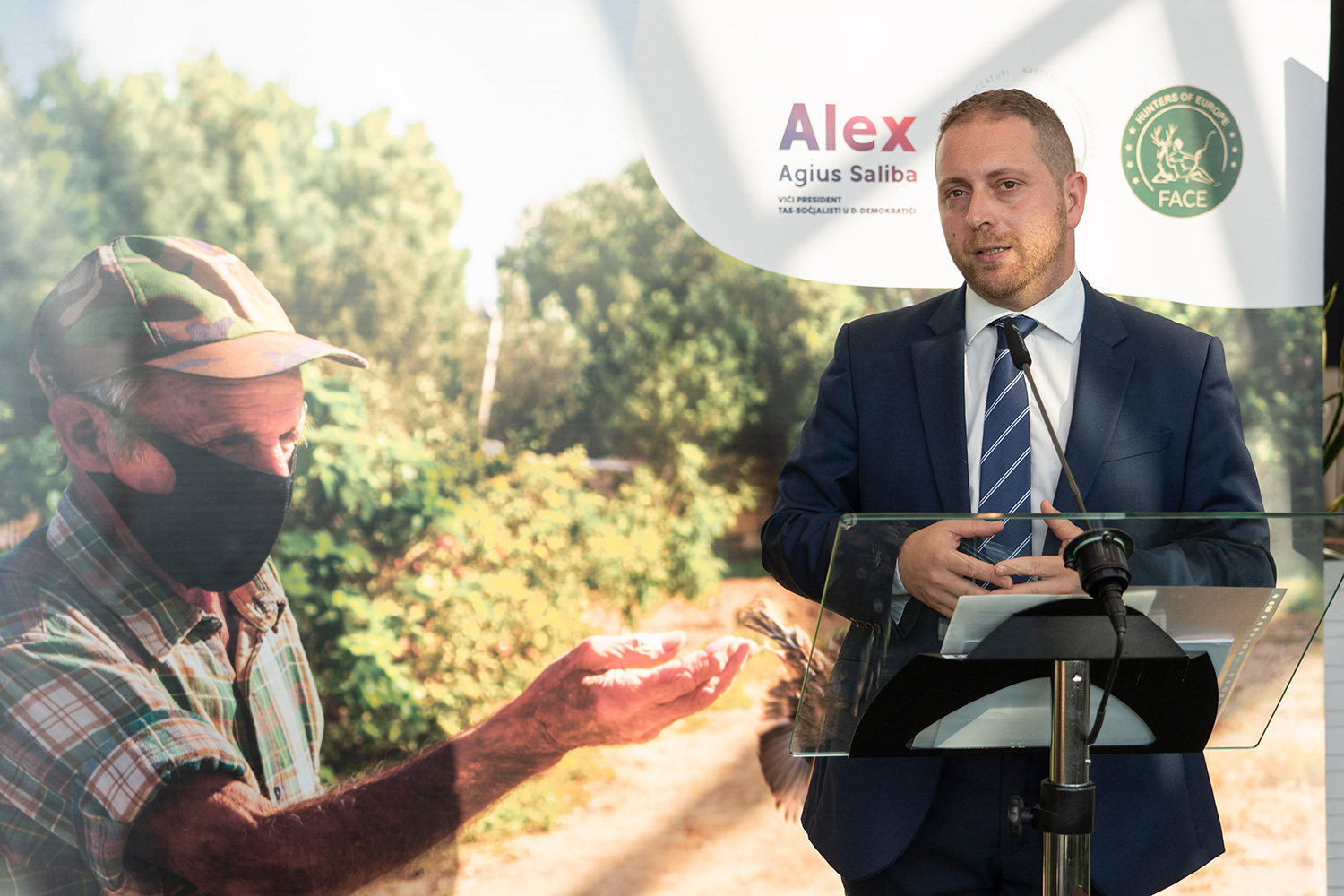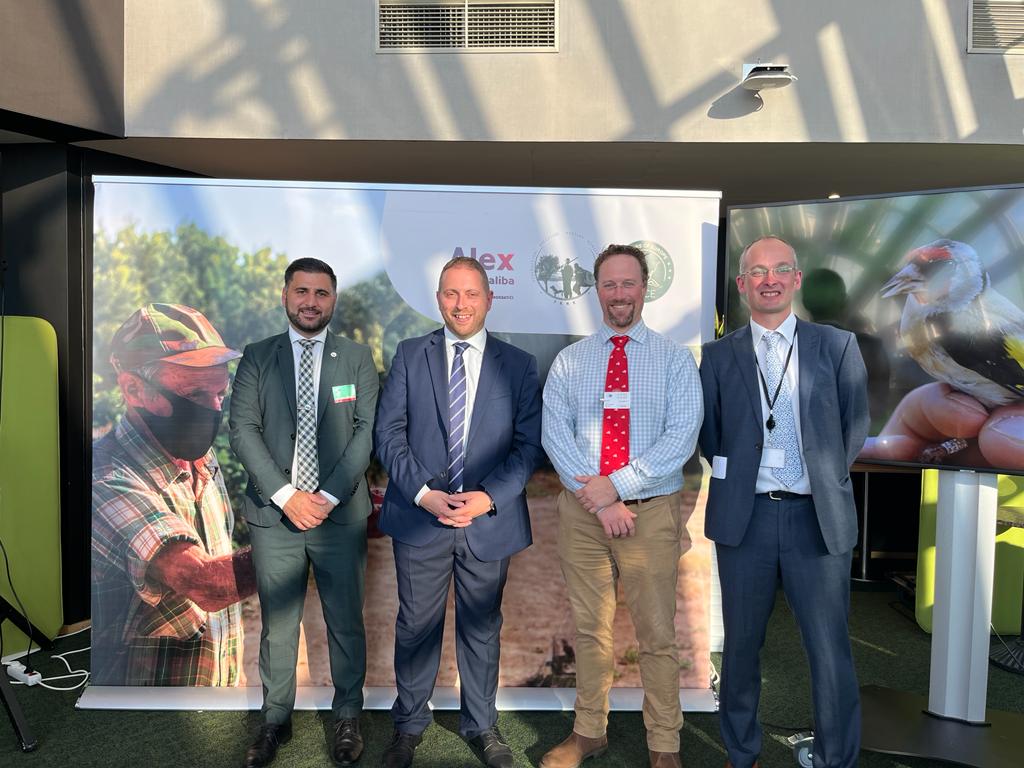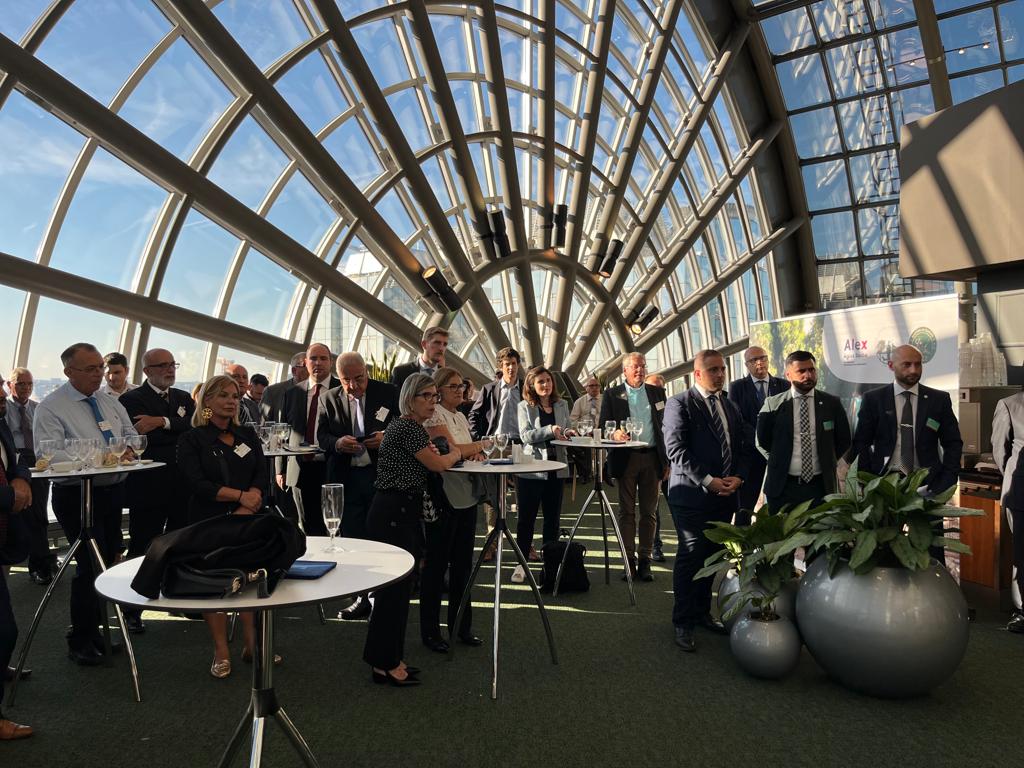
07 Sep 2023 The contribution of hunters and trappers to citizen science research in Europe
On 5 September 2023, FACE, in conjunction with the Federation for Hunting & Conservation Malta (FKNK) the event on “The contribution of hunters and trappers to citizen science research in Europe”, which was hosted and chaired by MEP Alex Agius Saliba (Malta, S&D) in the European Parliament.
The event discussed the cultural relevance and heritage of bird trapping in Malta, which is an activity occurring on a small scale, with live-capturing (no killing) of species of least concern, ensuring no impact on bird populations. This event highlighted the contribution of hunters to scientific knowledge through community science practices such as bird ringing and marking, as well as the contribution trapping in Malta could provide.
Opening the event, MEP Agius Saliba welcomed the audience and stated that: “Capture-marking-recapture programmes form a fundamental activity in bird ecology science. Scientific bird ringing is one of the most effective methods to study the biology, ecology, behaviour, movement, breeding productivity and population demography of birds. In Malta, trappers are equipped with the necessary knowledge and tools to significantly contribute to the scientific knowledge of Finch species, through bird ringing, just as ringers throughout the world are also doing. Dialogue, understanding, and collaboration among diverse perspectives are needed while promoting knowledge exchange”.


The event discussed the cultural relevance and heritage of bird trapping in Malta, which is an activity occurring on a small scale, with live-capturing (no killing) of species of least concern, ensuring no impact on bird populations. This event highlighted the contribution of hunters to scientific knowledge through community science practices such as bird ringing and marking, as well as the contribution trapping in Malta could provide.
Opening the event, MEP Agius Saliba welcomed the audience and stated that: “Capture-marking-recapture programmes form a fundamental activity in bird ecology science. Scientific bird ringing is one of the most effective methods to study the biology, ecology, behaviour, movement, breeding productivity and population demography of birds. In Malta, trappers are equipped with the necessary knowledge and tools to significantly contribute to the scientific knowledge of Finch species, through bird ringing, just as ringers throughout the world are also doing. Dialogue, understanding, and collaboration among diverse perspectives are needed while promoting knowledge exchange”.
Lucas Micallef, President of FKNK, spoke in depth about the socio-cultural tradition of wild bird trapping (live-capturing) on Maltese islands. He said that: “On the occasion of the FKNK’s 50th Anniversary, as we have always done throughout these 50 years, we will continue to work towards safeguarding our traditional socio-cultural passions on the Maltese Islands, also by active participation in citizen science studies”.
Dr. Matt Ellis, Deputy Director of Conservation at the British Association for Shooting & Conservation (BASC), presented “Project Penelope”, an international collaborative project between hunters and scientists aimed at improving knowledge about the Eurasian Wigeon, an important quarry species in Europe. The project runs from 2021 to 2024 with the aim of tracking Eurasian Wigeon using GPS trackers and color rings to gather information such as migration routes, habitat use, and demography to support future conservation actions and secure the sustainability of hunting. “Project Penelope” is a success story featured on the Biodiversity Manifesto, illustrating how hunters, through citizen science, can effectively help generate data and drive species conservation actions, while improving collaboration and trust among stakeholders.
Cy Griffin, Senior Conservation Manager at FACE, stated that: “Hunters are contributing to the monitoring of biodiversity across Europe and are well placed to do so as hunting grounds are widely distributed across Europe and hunters are motivated to further understand of the ecology of huntable species. The value of these monitoring schemes as national biodiversity indicators is being recognised, but there is potential to do much more. Game species are well studied by scientists, by both hunters and non-hunters. The Maltese trappers are highly skilled and willing to contribute more knowledge on migratory birds. The presentation today showed promising results, and I hope this can continue.”
The event was well attended and provided the opportunity for participants and stakeholders to engage with the themes discussed and build valuable connections.

